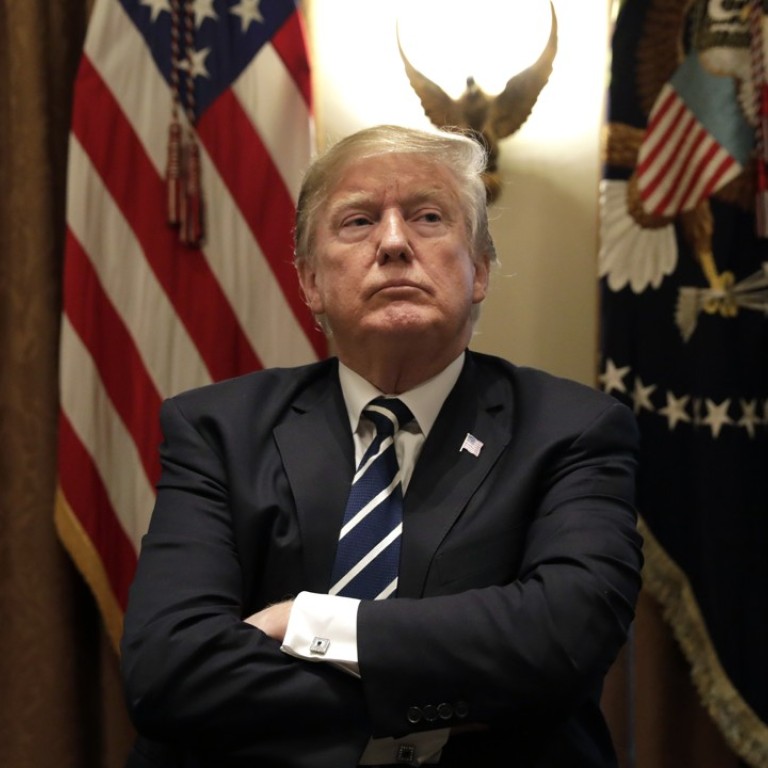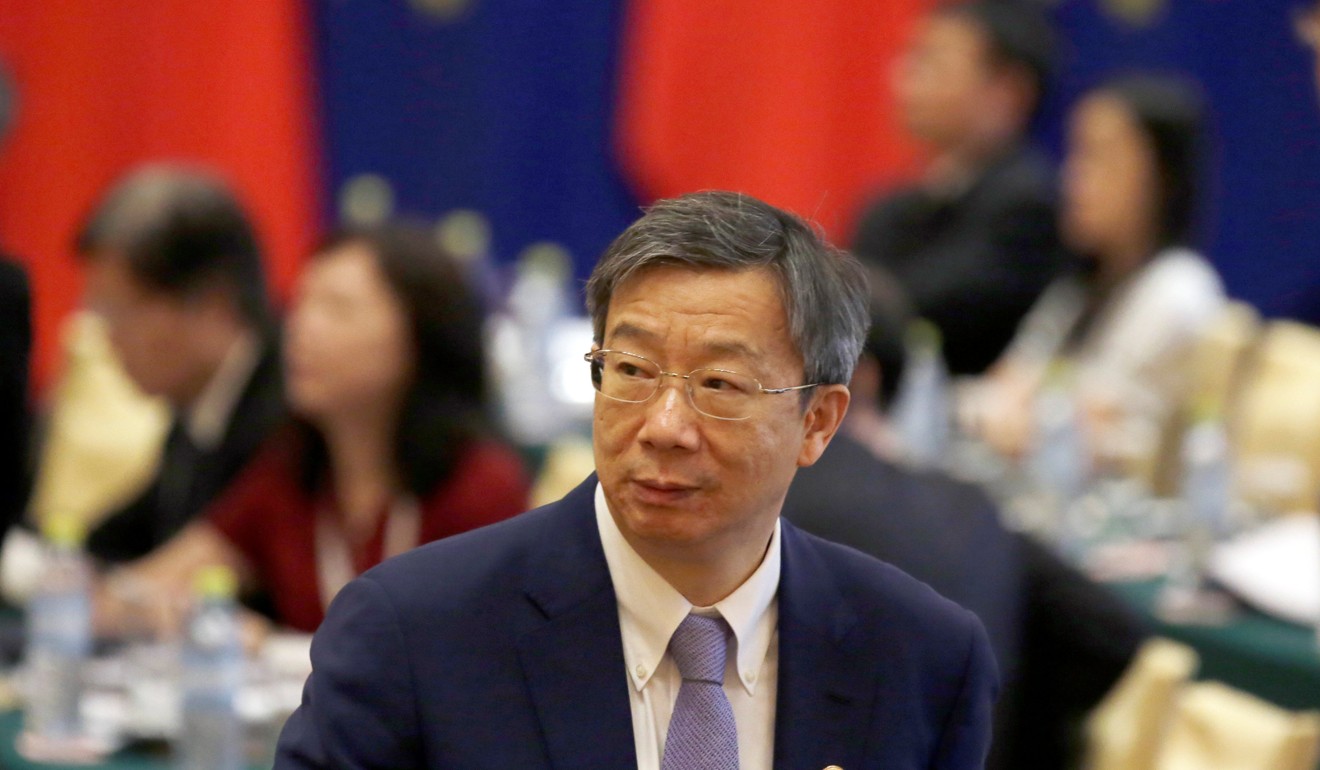
Why is Beijing unusually muted since Donald Trump’s latest US$500 billion trade war threat?
Various possible reasons behind the lack of specific retaliation to the threat of tariffs on the total value of Chinese products imported by the US
Beijing has remained unusually quiet over US President Donald Trump’s latest threat of imposing tariffs on, essentially, all Chinese imports.
In the past two days – since Trump said in an interview with CNBC on Friday that he was ready to take a more aggressive approach by imposing tariffs on US$500 billion worth of Chinese products – neither the Chinese commerce ministry nor the foreign ministry has issued any statements.
The Chinese state media, from the official Xinhua news agency to Global Times, did not cover Trump’s fresh threat, and an opinion piece published by People’s Daily on Saturday did not include the potential US$500 billion tariffs.
The silence in Beijing is unusual, but comes after Chinese media were told not to “over-report” the trade war, to avoid spreading panic.
Previous threats drew a more pronounced response, albeit that Trump’s latest threat was just that, and not an official announcement.
When Washington announced it was to impose tariffs on US$50 billion worth of Chinese products on June 15, China’s Ministry of Commerce immediately issued a statement, at 1:30am local time that Saturday, announcing its retaliatory measures, with a detailed list of US products that Beijing would target for additional import duties.
When Trump later announced tariffs on another US$200 billion of goods, Beijing swiftly responded by saying it would adopt a “quantitative and qualitative” countermeasure, although it fell short of providing specifics.
Faxed requests this weekend to the ministry of commerce and foreign ministry went unanswered.
Iris Pang, chief China economist of ING Bank, said China was resisting responding to Trump’s rhetoric this time, partly because the US leader may be only bluffing.
The threat of targeting US$500 billion of Chinese merchandise was not new and the harsh proposal may have been a tactic to shift attention from widespread criticism of his meeting days earlier with Russian counterpart Vladimir Putin, she said.
“It won’t bring any concerns [for China] unless a clear timeline of implementation is released,” she said.
Another potential reason is that China has nothing to add to its previous statements.
The People’s Daily editorial on Saturday, for instance, said Washington would “be hoisted by its own petard” and “find its own way back from losing its way in launching a trade war with China”, reiterating an official Chinese position that a trade war is bad for everyone.
“China will suffer some damage from this trade war with the US... and we have to take some countermeasures,” the editorial stated.
“It’s necessary for China to give the US a head-on, painful attack, so that it could truly realise that its trade war is a disaster for the US, other countries and the whole world.”
In real terms, China could not match the scale of Trump’s suggested US$500 billion of tariffs – roughly the total value of Chinese products imported by the US last year.
According to US data, China imported only US$130 billion of US goods, meaning that Beijing would eventually have to resort to non-tariff measures.

China and the US have so far imposed a 25 per cent tariff on US$34 billion of each other’s goods. Tariffs on a further US$16 billion are due to take force in the coming weeks, while Washington is planning a 10 per cent duty on US$200 billion of Chinese goods.
Apart from the threats of further tariffs, Trump has criticised the recent depreciation of the Chinese yuan.
Trump tweeted on Friday: “China, the European Union and others have been manipulating their currencies and interest rates lower, while the US is raising rates while the dollar gets stronger and stronger with each passing day – taking away our big competitive edge. As usual, not a level playing field...”
China has largely ignored Trump’s allegations on the yuan.
The People’s Bank of China, which is in charge of China’s exchange rate policy, has rarely responded to Trump in public. But the central bank’s governor Yi Gang has previously indicated that China
would not use the yuan exchange rate as a weapon in the trade war with the US.
A weaker yuan against the US dollar can in theory help Chinese exports to the US, because Chinese products will be more competitive in price in the US market.
ING economist Pang said she believed the recent depreciation of the yuan, which has hit its lowest level in a year against the US dollar, was a market response to a strengthening dollar and not a form of “qualitative” fightback from Beijing.

